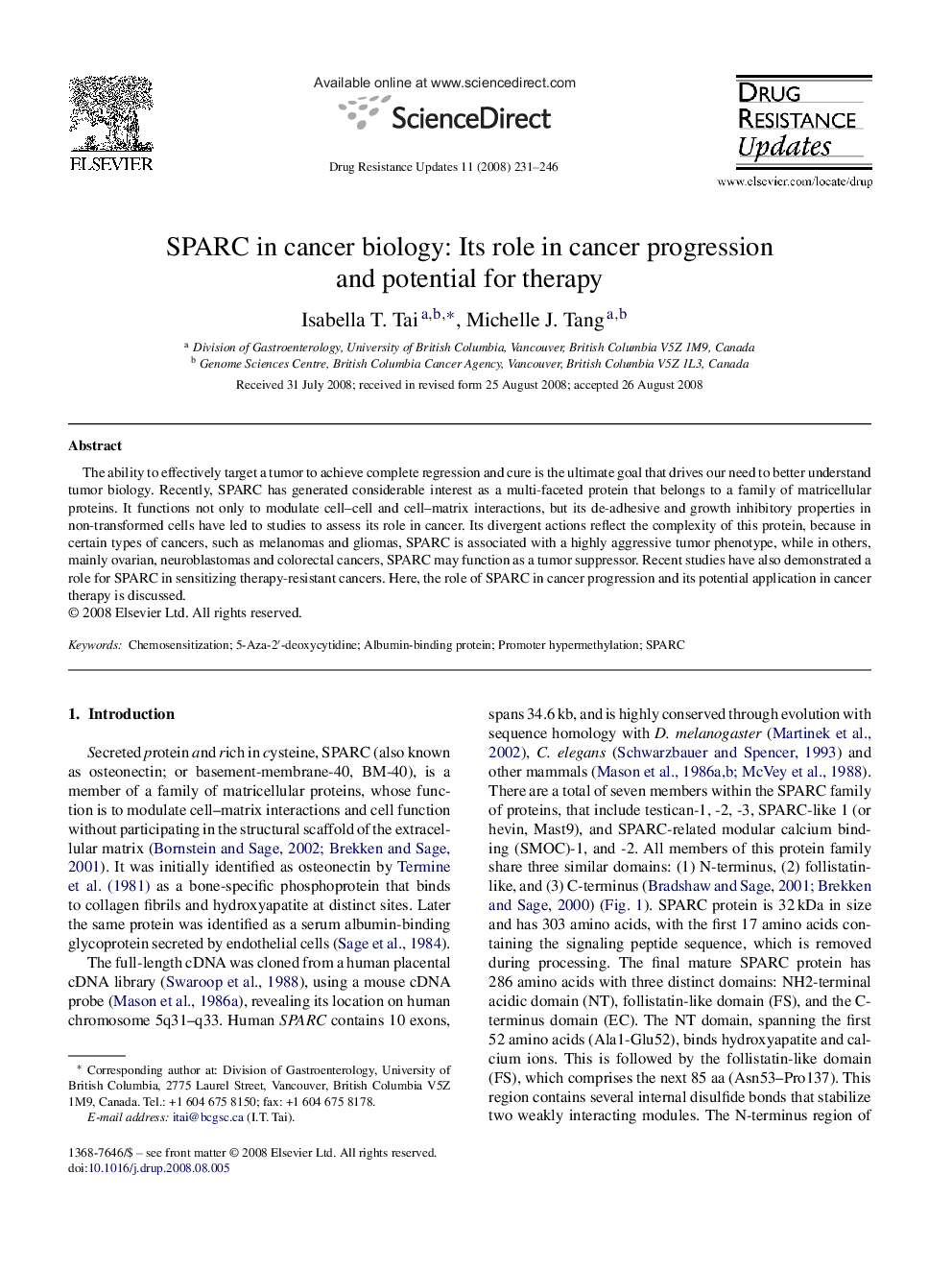| Article ID | Journal | Published Year | Pages | File Type |
|---|---|---|---|---|
| 2120511 | Drug Resistance Updates | 2008 | 16 Pages |
The ability to effectively target a tumor to achieve complete regression and cure is the ultimate goal that drives our need to better understand tumor biology. Recently, SPARC has generated considerable interest as a multi-faceted protein that belongs to a family of matricellular proteins. It functions not only to modulate cell–cell and cell–matrix interactions, but its de-adhesive and growth inhibitory properties in non-transformed cells have led to studies to assess its role in cancer. Its divergent actions reflect the complexity of this protein, because in certain types of cancers, such as melanomas and gliomas, SPARC is associated with a highly aggressive tumor phenotype, while in others, mainly ovarian, neuroblastomas and colorectal cancers, SPARC may function as a tumor suppressor. Recent studies have also demonstrated a role for SPARC in sensitizing therapy-resistant cancers. Here, the role of SPARC in cancer progression and its potential application in cancer therapy is discussed.
